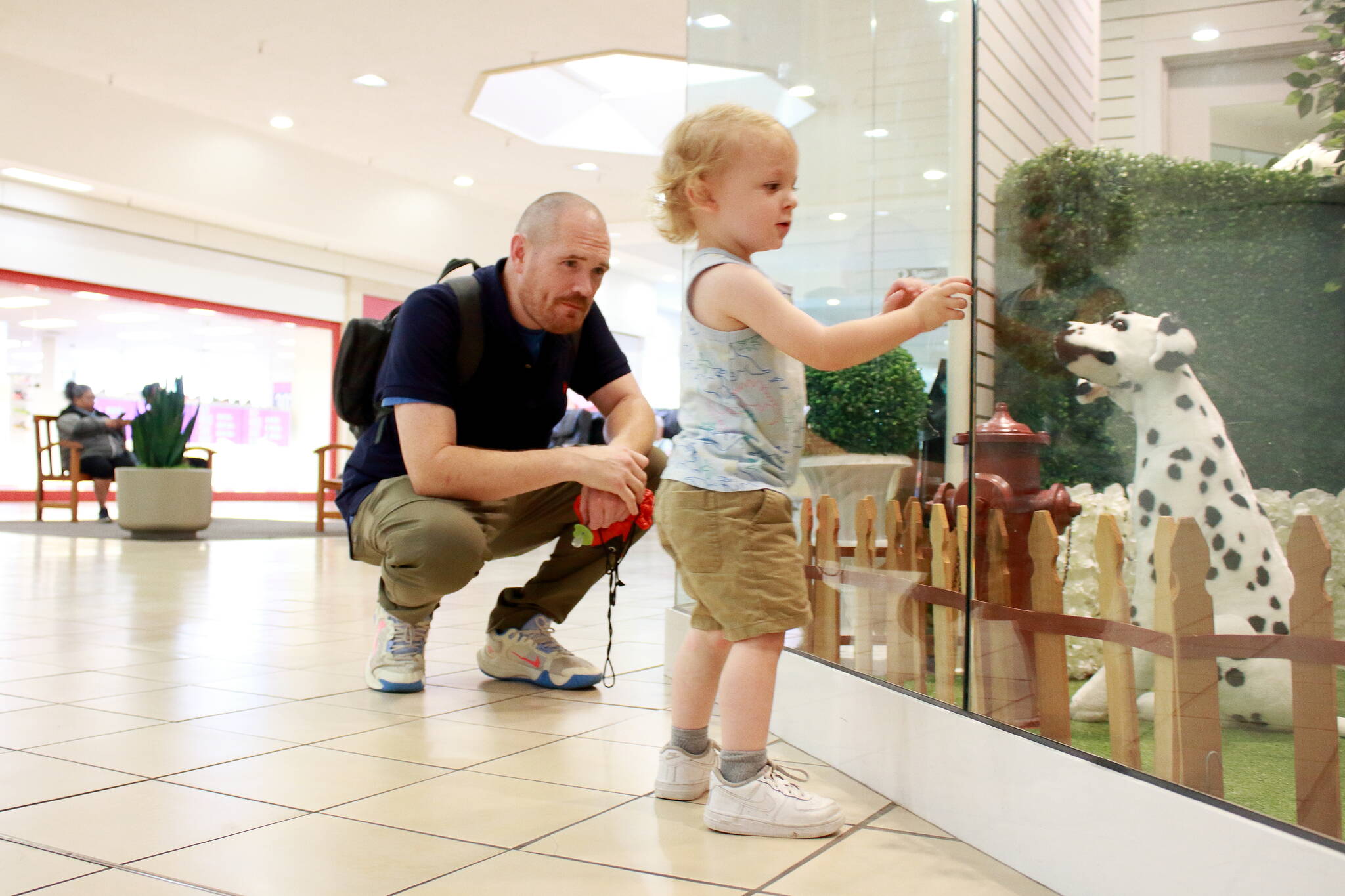Last year, Jared Gloster searched for emergency housing resources while he watched his 18-month-old son play in the kids area of the Commons mall, not knowing where they would sleep that night.
This year, he sat on the same benches and talked about his path from homelessness to stability through a program in Federal Way. He also shared the barriers faced by single fathers experiencing homelessness.
“I was told that my best chance was to put my son into the foster care system and to stay in a men’s shelter,” Gloster said.
Gloster’s story is not unique. Families in King and Pierce counties are increasingly vulnerable to homelessness, according to research by the U.S. Department of Housing and Urban development.
Being a single father can bring specific challenges.
“The fact is most of the social and shelter services available to parents are geared toward women with children, which inadvertently excludes custodian fathers,” Tamara Hill wrote in the study “Inclusiveness: Addressing the Needs of Homeless Single Fathers with Children.”
Gloster grew up middle class and has worked consistently since the age of 16. He never had any issues with unemployment or thought that he would ever be homeless.
This changed when a volatile custody situation over his infant son lost him multiple jobs and pushed him further behind on bills. He shares custody off and on to this day, but the inconsistency causes devastating problems. After losing his housing, he would sleep in his car and work during the part of the week when he didn’t have his son, then use those earnings to pay for a hotel when it came time to pick him up.
One day his ex-partner did not show. Gloster lost his job and his precarious hold on any type of stability.
Gloster said when he first became homeless, he had heard from several people on the street that there were resources available. When he tried to access these resources, it suddenly seemed much less possible to find shelter.
Eventually, another homeless woman told him to go to FUSION. He first wound up at the nonprofit’s boutique. Then some volunteers at the store pointed him in the right direction. They welcomed him, and within a few hours, he had a safe place to rest.
Since that first night, he has been steadily working through FUSION’s transitional housing program and is nearing full self-sufficiency.
“I don’t know how much longer we could’ve lasted that way,” Gloster said of that challenging time. “I hadn’t slept in three or four days and had tried every resource I could find.”
The Multi-Service Center in Federal Way has a family emergency housing program that can support 15 families. Case workers meet with families weekly to build individualized plans to meet their needs. Length of stay can vary, depending on progress and needs.
“The worst thing for providers is that it is really frustrating to turn people away and say ‘we can’t help you,’” said Maju Qureshi, economic stability director at the Multi-Service Center in Federal Way. “Options are limited or not even there.”
To access these beds, Qureshi advised families experiencing homelessness to call the Family Emergency Shelter Access line through Mary’s Place. This line brings together over a dozen local organizations to match family needs with openings, ideally that same night.
This is not always a guarantee. In King County in 2022, the National Alliance to End Homelessness reported that there were zero beds available on average while 1,253 individuals considered part of a family unit slept outside each night.


